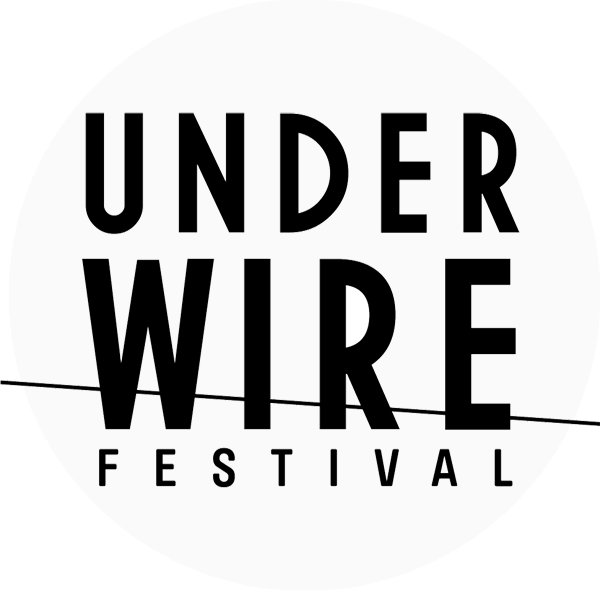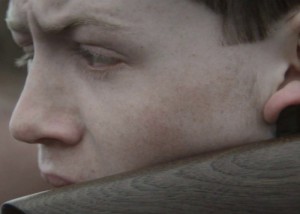Claire Oakley won Best Director in 2014 for Tracks.
I studied English Lit at Edinburgh University and then started assisting directors on set. Firstly I assisted The Guard Brothers on The Uninvited, and then John Crowley on Boy A and Is Anybody There?. It wasn’t until a few years after that that I thought I’d like to direct myself. By then I was working as a script reader for various companies like BBC Films, Working Title Films and the BFI and I wrote and directed my first short on a £500 budget. I then went on to make 3 others.
How did the idea for Tracks come about?
This film was commissioned by Rankin Film Productions as part of their ‘Collabor8te’ scheme. They selected 8 shorts from 1400 entries and gave us each £10,000. They also paired us with a development executive - mine was Tristan Goligher at The Bureau - and with his advice and support I developed the script. It was a great process and we were supported at every stage.
What was the biggest challenge in making Tracks?
The biggest challenge was a logistical one - we were shooting in Scotland in September and the whole film is set outside so weather was a big concern. We also had a 2 hour trek straight uphill to location every day. We had to get all our kit up there as well as the key prop - a 13-stone dead deer. The crew were amazing and the most important lesson for me was to try and stay focussed on the story and the characters - on the onscreen drama - despite what dramas were happening behind the scenes!
What other female filmmakers inspire you? Or are there any films that you’ve seen recently that you’ve really admired?
I am a huge admirer of Joanna Hogg and wrote to her after seeing Exhibition describing how moved I was by her astute and brave film. She wrote back a lovely letter to me. It is so important having people to inspire you and to look up to and the fact she took the time to write back really reminded me of the value of mentors.
What was your experience of screening your film in competition at Underwire Festival?
It was really great to meet so many people working across the different disciplines. It is rare to go to a festival and meet composers, designers, editors, DoPs and sound designers. As a director is it really important, not only to meet these people, but also see their work. I think it is a great event and Underwire are doing fantastic work in recognising and promoting talented and skilled filmmakers.
Did any opportunities arise from being part of Underwire?
Thanks to Underwire I met Taina Galis who won Best Cinematography in 2012 and have since worked with her on one of my shorts - James - which screened at Underwire in 2014.
How did the prize you received from our award partner help you in your career?
I became a member of Directors UK which is a fantastic organisation doing great work in screening films, discussing films, developing skills and campaigning for a fairer industry. I have been part of many of these events over the last year - I’ve seen Julianne Moore speak, watched lots of UK features and I did a course on ‘Working with Actors’.
How important have festival screenings been for you?
I love festivals! I always come back re-invigorated and full of ideas and new contacts. A good festival will inspire you, it will remind you of what you are doing and why you are doing it and it will fill you with the confidence to get back out there and do it again.
Do you have any advice for filmmakers currently submitting their films to the festival circuit?
There are so many festivals out there that it’s hard to choose where to send it but my advice would be to pick the countries and cities that you want to visit! I’ve been to France, Germany, Czech Republic, Belgium, Poland, Madeira, Spain, Texas, Nashville, Bermuda and Canada with my films and met filmmakers from all over the World. It’s a rich and amazing experience that goes way beyond sticking a laurel on your poster.
What advice would you share with other filmmakers?
The best advice I’ve been given is “get better” - as in get better at what you do, learn your craft, know your stuff, do it well.
What do you think would benefit female filmmakers trying to make it in the industry?
Funding. There are lots of schemes promoting mentorship, building skills, and creating networks and they are all great but ultimately it comes down to funding - give us the money and we’ll make the films.
What projects are you working on now?
I am working on my feature - The Swan - which I wrote with Torino Film Lab last year. It has been selected for IFP in New York so Emily Morgan (my producer on Tracks and on this) and I will be taking the script there in 2015. Here in the UK we have Soda Pictures on board and we are currently talking to the BFI and Creative England about taking the next stage of development.

